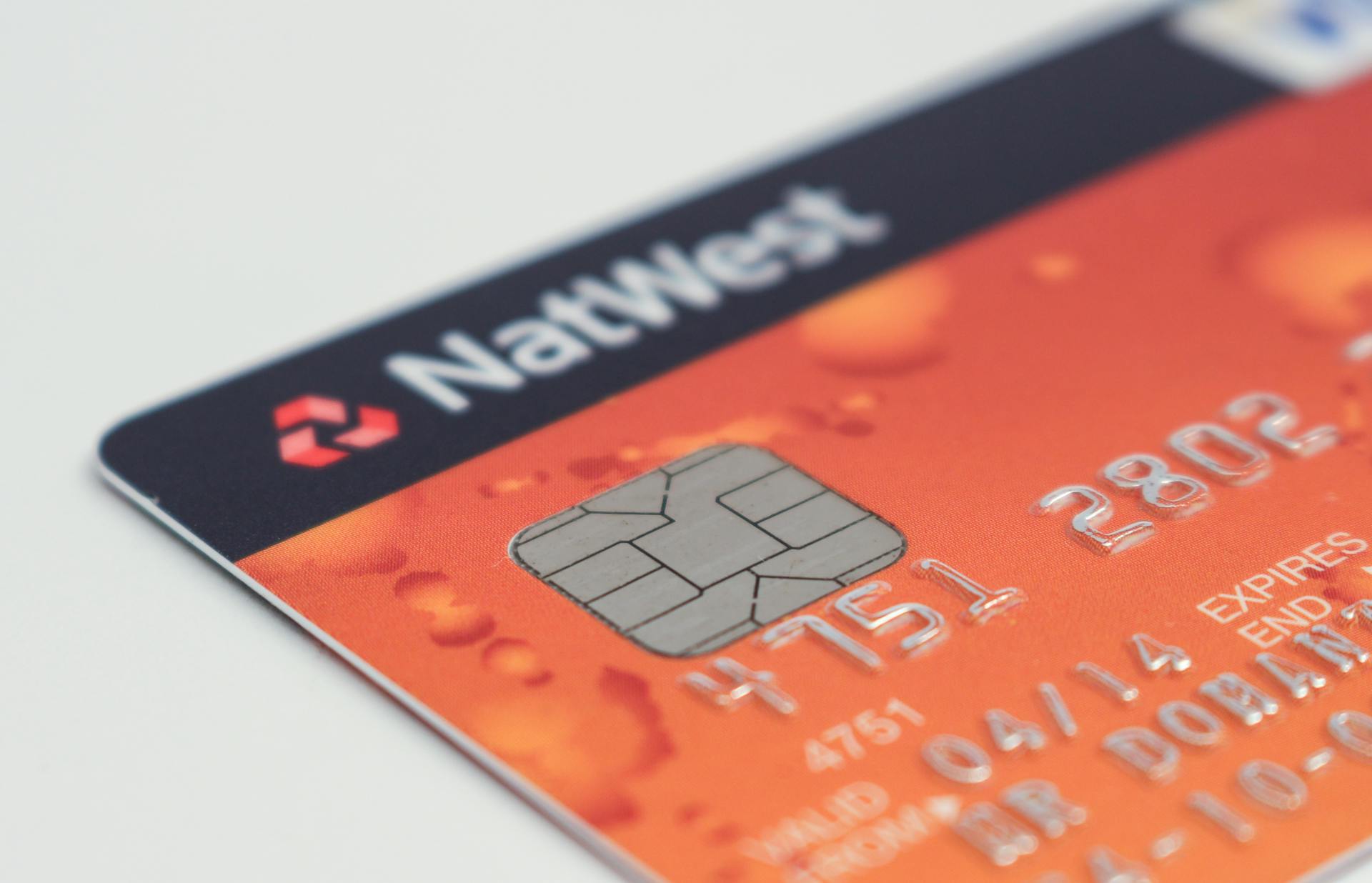
If you've got a windshield chip, you're probably wondering if your insurance will cover the costs of repair or replacement. In most cases, the answer is yes, but there are some exceptions.
Comprehensive coverage is typically the most relevant policy for windshield chip repairs, as it covers damage from non-collision events like rock chips. This type of coverage usually requires a deductible, which can range from $50 to $1,000 or more.
However, not all insurance policies are created equal, and some may have specific exclusions or limitations for windshield damage. For example, some policies may only cover damage that occurs within a certain time frame or under specific circumstances.
You might enjoy: Chip Dental Insurance
Does Insurance Cover Windshield Chip?
Using insurance to cover a windshield chip can be a smart move if you have comprehensive coverage with a low or zero deductible. This can significantly reduce your costs.
If you're unsure about your policy details, review your policy documents to understand your coverage and deductible.
A different take: Does Gap Insurance Cover Deductible
Cost to Repair a Windshield
Repairing a windshield can be a relatively inexpensive fix, ranging from $50 to $150 for minor chips and cracks. However, a new windshield can cost significantly more, up to $1,500 or more for vehicles with advanced driver assistance systems.
The cost to repair a windshield generally falls around $150 for a single chip or crack less than six inches long. If your deductible is over that amount, it's recommended to pay out of pocket instead of filing a claim.
If you do decide to file a claim, be aware that it may cause your rates to increase, especially if you have made previous claims. A $50 deductible would still save around $70 from your insurance company, but it's often better to pay out of pocket to avoid future rate hikes.
Here's a rough estimate of the cost to replace a windshield without insurance:
Should You Replace?
Replacing a windshield can be a costly endeavor, but is it worth using your insurance coverage? Making a claim for windshield damage can affect your premiums and cause them to be more expensive in the future.
You may want to avoid using your car insurance coverage to replace a cracked windshield if the cost of the damage is close to your deductible. A claims settlement would come to the cost of replacing your windshield minus your deductible.
If you have a $500 deductible, the cost to replace your car's windshield would have to be at least that before you could use your insurance to pay for the repairs. In this scenario, it's better to pay the cost of the damage yourself instead of the deductible, plus future premium increases.
You might like: Freeway Insurance Pay
Repair/Replacement Costs
Repairing a broken windshield can be a relatively inexpensive process, with costs ranging from $50 to $150 for minor chips and cracks. However, more extensive damage can be pricier, with costs reaching up to $1,500 or more for advanced windshields.
If you're considering a DIY repair, be aware that the wrong amount of pressure can turn a small chip into a large crack, requiring a full windshield replacement. Acrylic compounds can improve visibility and prevent further damage, but won't completely eliminate the chip.
Typically, repairing a windshield without insurance costs less than $400, with the average cost being around $390 per year. However, costs can vary depending on factors such as where you live, the type of car you drive, and the extent of the damage.
Here's a breakdown of the costs associated with replacing a windshield without insurance:
- Where you live: Service providers can charge different rates to fix a windshield.
- Advanced technology: Newer vehicles with advanced sensors and technology can increase repair costs by several hundred dollars.
- Type of car: Classic cars, sports cars, and luxury vehicles often have custom windshields, increasing repair costs.
- Tinting: Tinted windshields or other treated glass can be more expensive to repair or replace.
- Front or rear windshield: Replacing a rear windshield can sometimes be cheaper if there is no wiper assembly.
- Used glass: Choosing used glass can help reduce the cost of replacing your windshield.
- Amount of damage: A tiny chip in your windshield could be a cheap, simple repair, while a huge crack or shattered glass will require a full replacement.
If you have a deductible of $500 or more, it may not be worth filing a claim, as the cost of repairing a windshield generally falls around $150 for a single chip or crack less than six inches long.
Filing a Claim
Filing a claim for windshield damage is a straightforward process. You can contact your insurance provider by calling an agent or submitting a claim online. It's essential to act quickly when damage occurs.
Most insurance companies require you to contact them within a certain timeframe after the loss. You'll need to provide details about the damage, including photos and measurements, to your claims adjuster.
If your deductible is less than $1,000, it's worth getting an estimate of the cost to repair or replace the windshield to determine whether the cost is higher than your deductible. However, if your deductible is more than $1,000, it's unlikely your windshield damage costs would exceed that amount, so filing a claim may not be worth it.
Some states, like Arizona, Florida, Kentucky, and South Carolina, have laws requiring insurers to offer windshield replacement without a deductible. However, this may not apply to side or rear windows.
To file a claim, you'll need to:
- Photograph and measure the damage to determine whether a repair is enough.
- File a claim online, over the phone, or by visiting your local insurance agent.
- Provide the photos or size of the damage to your claims adjuster.
- Choose a glass and windshield specialist from the available options your insurance company provides.
Keep track of your receipts and communications with your insurance company to ensure you have all the necessary information in hand. This will help you avoid any potential disputes later on.
Insurance Usage Considerations
If you have comprehensive coverage with a low or zero deductible, filing a claim can significantly reduce your costs.
Don't have comprehensive coverage? You might be out of luck.
Additional reading: 2024 Kentucky Auto Insurance Comprehensive and Collision Coverage
Filing a claim with a high deductible can be a costly mistake, so it's essential to weigh the pros and cons before making a decision.
If you have extended glass coverage on a Lemonade Car policy, you could replace your windshield with little to no deductible, which can be a huge relief.
Windshield Damage Types
Windshield damage can occur in various forms, but most are covered by insurance if you have the right policy. If you're wondering what types of damage are covered, here's what you need to know.
Rock chips, caused by debris on the road, are a common type of windshield damage. They can be small and seemingly harmless, but they can quickly turn into larger cracks if left unrepaired.
Driving with a damaged windshield can obstruct your view and create hazardous driving conditions. It's essential to repair rock chips promptly to maintain your vehicle's safety and prevent more extensive damage down the line.
Related reading: Why Is Anucort-hc Not Covered by Insurance?
When to Replace?
Replacing a cracked windshield can be a daunting task, but it's essential to consider the costs involved. You may want to replace your windshield if the damage is extensive, making it difficult to drive safely.
A claim for windshield damage can affect your premiums and cause them to be more expensive in the future. This is because making claims causes your rates to increase.
If the cost of the damage is close to your deductible, it's often better to pay for the repairs yourself. Your deductible can be anywhere from less than $100 to more than $2,000.
Even if your car's windshield undergoes $600 worth of damage, your insurance would only pay out a net total of $100 if you have a $500 deductible. This means you'll still have to pay $500 out of pocket.
You might enjoy: Insurance That Will Pay for Injury to Another Driver
Car Cracks?
If you've got a cracked windshield, don't worry, insurance can help. Comprehensive coverage typically covers damage caused by acts of God, such as a rock chip. It's always best to repair rock chips promptly, as they can quickly turn into larger cracks.
Driving with a damaged windshield can obstruct your view and create dangerous driving conditions. Timely repairs help maintain your vehicle's safety and prevent more extensive damage down the line. If you have a cracked windshield, you can file a claim under your comprehensive coverage.
Car insurance covers cracked windshields, depending on the source of the damage. If your windshield is cracked by another driver, their liability protection would pay for a replacement. If it's cracked by a falling branch, flying rock, vandal, or another covered peril, then your comprehensive coverage would protect you from paying for the replacement yourself.
Here are the four main instances when your cracked windshield will either be covered by your insurance or someone else's:
- Your windshield was damaged by an "act of God", as long as you have comprehensive coverage
- You were at-fault in an accident, as long as you have collision coverage
- Another driver's liability coverage
- Your comprehensive coverage or collision coverage, depending on the source of the damage
If you have a higher deductible, you can consider purchasing glass coverage, also called a "full glass policy." This add-on allows you to avoid a deductible when making glass-related comprehensive claims.
Discover more: Does Insurance Cover Sunroof Glass
Comprehensive Glass Coverage
Comprehensive glass coverage is a type of insurance that protects your car from damage not caused by another vehicle. It's an optional coverage that's usually purchased with collision insurance.
Most comprehensive insurance policies cover damage to your windshield and car windows, including acts of vandalism. Comprehensive insurance will reimburse you for events like a tree branch falling on your windshield or a baseball breaking your windshield.
You can expect comprehensive insurance to cover damage caused by a pebble while driving, an animal crashing into your windshield, or severe hailstorms. However, it's essential to double-check your policy to see which events are covered and what your windshield deductible is.
Here are some common examples of what comprehensive insurance would reimburse you for:
- A tree branch falling on your windshield
- A baseball breaking your windshield
- A pebble damaging your windshield while driving
- Acts of vandalism
- An animal crashing into your windshield
State Farm Repair
State Farm covers windshield repair if you have comprehensive or collision coverage. If you're unsure about your coverage, it's a good idea to check your policy documents.
The cost of repairing your windshield may be subject to a deductible, so it might not be worth filing a claim. This is something to consider before making a decision.
Sources
- https://www.lemonade.com/car/explained/windshield-crack-repair/
- https://www.policygenius.com/auto-insurance/does-car-insurance-cover-cracked-windshields/
- https://www.motor1.com/features/499332/windshield-repair-replacement-insurance-coverage/
- https://www.valuepenguin.com/does-car-insurance-cover-windshield-replacement
- https://www.bankrate.com/insurance/car/windshield-replacement/
Featured Images: pexels.com


